How to use a rowing machine to lose weight
A rowing machine can be an excellent tool both for helping you to lose weight as well as getting fit and building muscle.
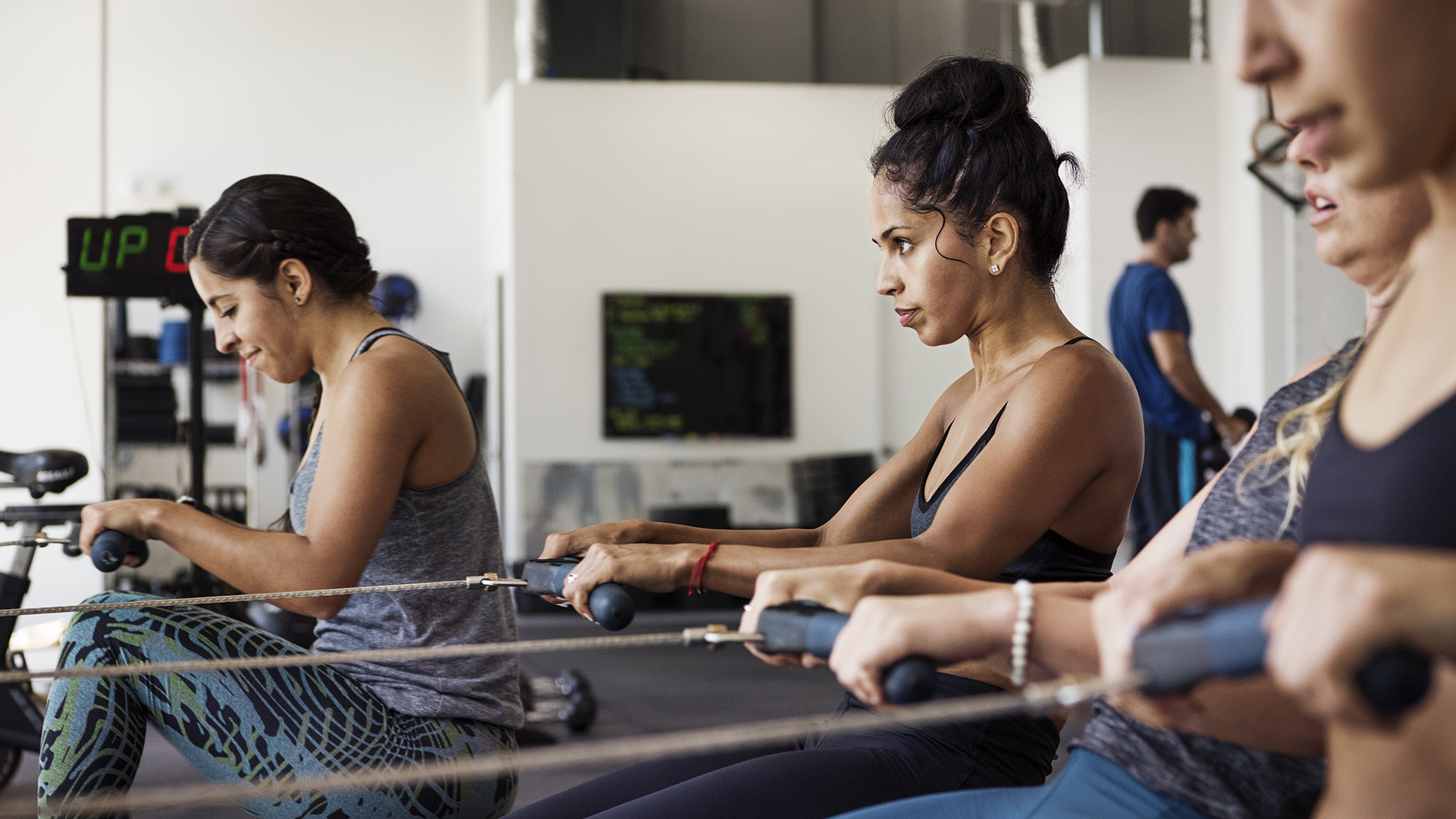
A rowing machine is an excellent device for raising your heart rate, providing a great cardio workout that can help you lose weight. And while you might perhaps associate them with people who are already superfine - like Olympic rowers - they are in fact suitable and useful for people of all levels of fitness, including total beginners.
It is however important to use them safely and effectively in order to maximize the benefits. We’ve done the research and also put togteher a few simple workout approaches for you, so you can try straight away, whether it is at the gym or on your own rowing machines.
In fact, if you have the space in your house, then a rowing machine is a perfect piece of equipment to use at home. It’s easy and safe to use, and there’s a huge variety of workouts you can do on it. Read on to learn how and why…
- Related: How often should you work out?
The basics of losing weight
Weight loss is achieved by expending more calories than you consume. This is commonly done in two ways…
- Consume fewer calories via dieting
- Increase your calorie expenditure through exercise
While experts say that diet is always the most important factor, it is also true that an efficient form of exercise like rowing, which maximises energy expenditure during a workout, will be most effective in reaching your weight loss goals.
However in order to achieve a higher level of energy use, you will need to maintain the exercise for longer. That means not starting at too high an intensity, or you will not be able to maintain the exercise, and therefore burn fewer calories.
Take running as an example. Running is an excellent tool for weight loss when it comes to burning calories, but of course that's only the case if you can actually maintain it. If you need to slow down to a walk, then it’s simply not going to be as effective a solution for you if weight loss is your goal - though you can of course build up to running for longer periods.
The beauty of a rowing machine, however, is that it can also be used at slower speeds while still offering a good level of calorie burn. In fact it’s one of the best exercise machines to lose weight. When compared to indoor cycling, research shows that rowing burns more calories at similar intensities. If you prefer bikes, though, we have also looked into whether exercise bikes are good for weight loss as well.
However, it's worth noting that according to a study at the Biological Sciences department at Ohio university, you burn more calories for the same amount of effort on a rowing machine than you would on an exercise bike.
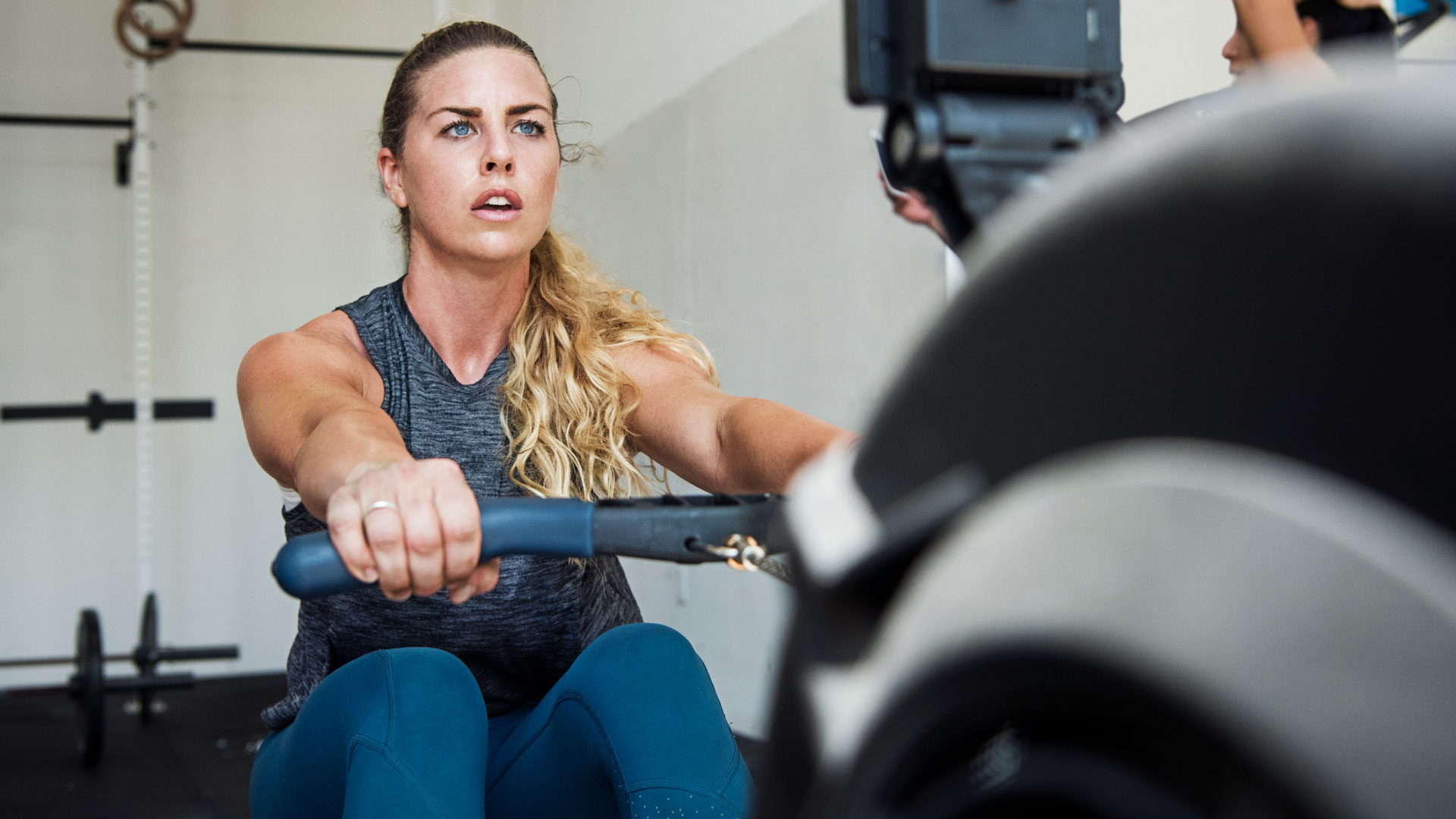
What are the weight loss benefits of rowing machines?
Beyond simple calorie burn, there are many other reasons why rowing machines are perfect for helping you to lose weight. Here’s a quick look at them.
It's relatively low injury risk
Many people struggle to enjoy running or find the impact on their muscles, ligaments and bones simply too much. Running can be difficult at first, and sometimes painful, especially for those who are new to the sport and don’t know how to run properly in order to minimise injury risk.
In a 2015, a meta-analysis of 13 studies on incidence of injuries in running, recreational runners suffered an average of 18 injuries per 1000 hours of running. Compare this to injury data in rowing where the average masters age (43-59) rower suffered only 2.25 injuries per 1000 training sessions on the rower.
If you are injury-prone, therefore, rowing may be a far safer form of exercise for you, as it avoids the high impact of running.
It’s perfect for home use
A rowing machine can be perfect for home use. Compared to bulky treadmills or other machines, they are relatively small and can often be stored upright or even folded in two. They also don't all need to be plugged in, so are cheaper to run than machines that require electricity.
Unlike treadmills, they are also more neighbor-friendly machines, especially if you live in an apartment block. They’re relatively quiet because there’s no motor running, and no noise from heavy footfall as there might be on a treadmill.
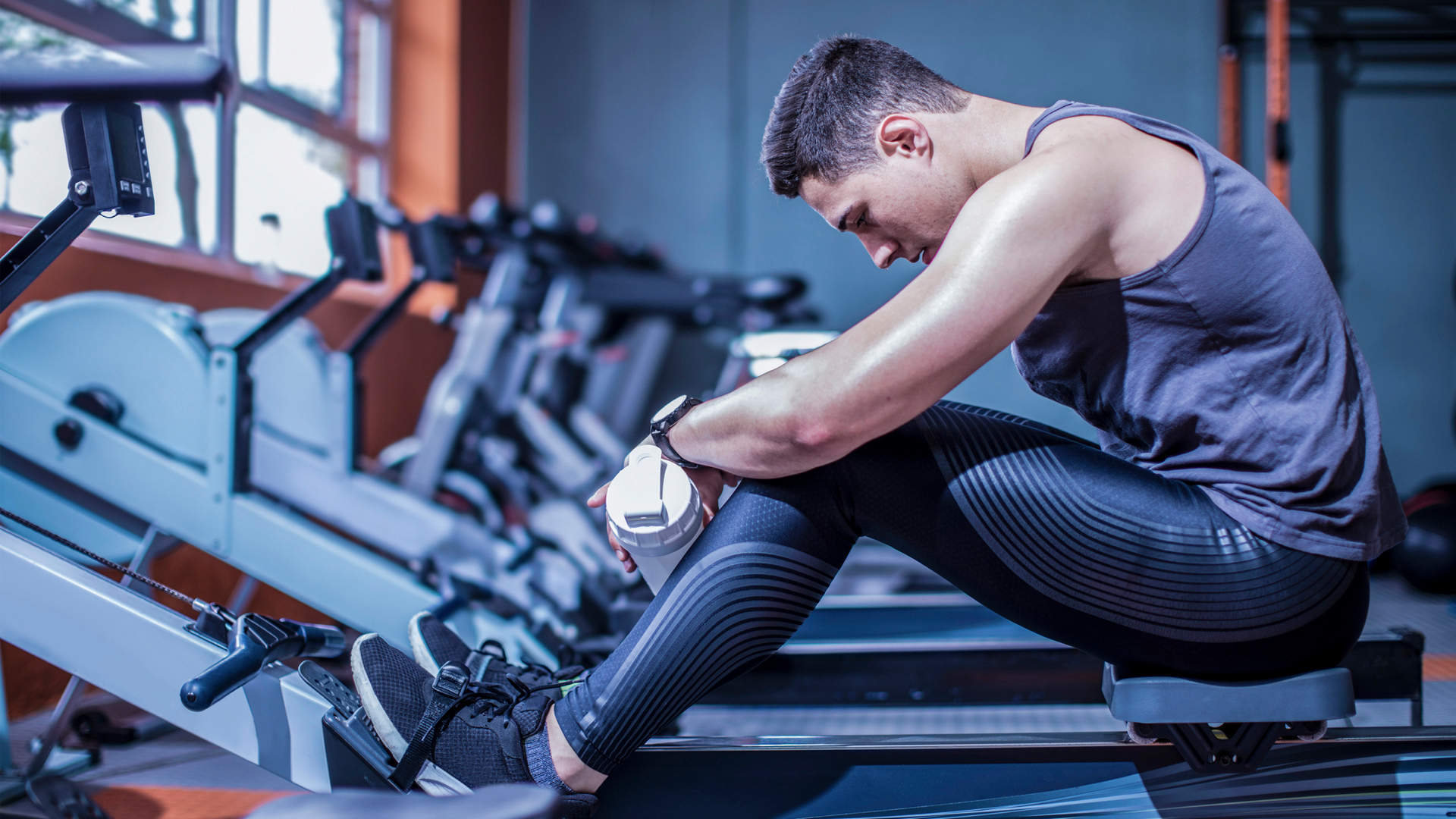
There’s little technique to learn
Whilst there is certainly some technique to learn, and it's a good idea to try and get it right for the most efficient use of the machine, its certainly not a hugely complicated piece of equipment to master. The basics can be picked up in a few minutes and learning efficient technique can help you avoid any common injuries too.
It’s a whole-body workout
It might look like your arms are doing most of the work, but a rowing machine trains the upper and lower body simultaneously, and even engages the core muscles too.
Many people may therefore prefer rowing as it can improve upper body strength and muscle tone as well as your legs, whereas exercises like running and cycling tend to focus far more on the lower body.
Rowing is suitable for all fitness levels
A rower works for all fitness levels because it can be operated at any speed and intensity. Operating a rower at even a very light intensity will still help you to get fit. As you get more experienced at using it, you can also mix up the types of intensity or speeds that you use it at.
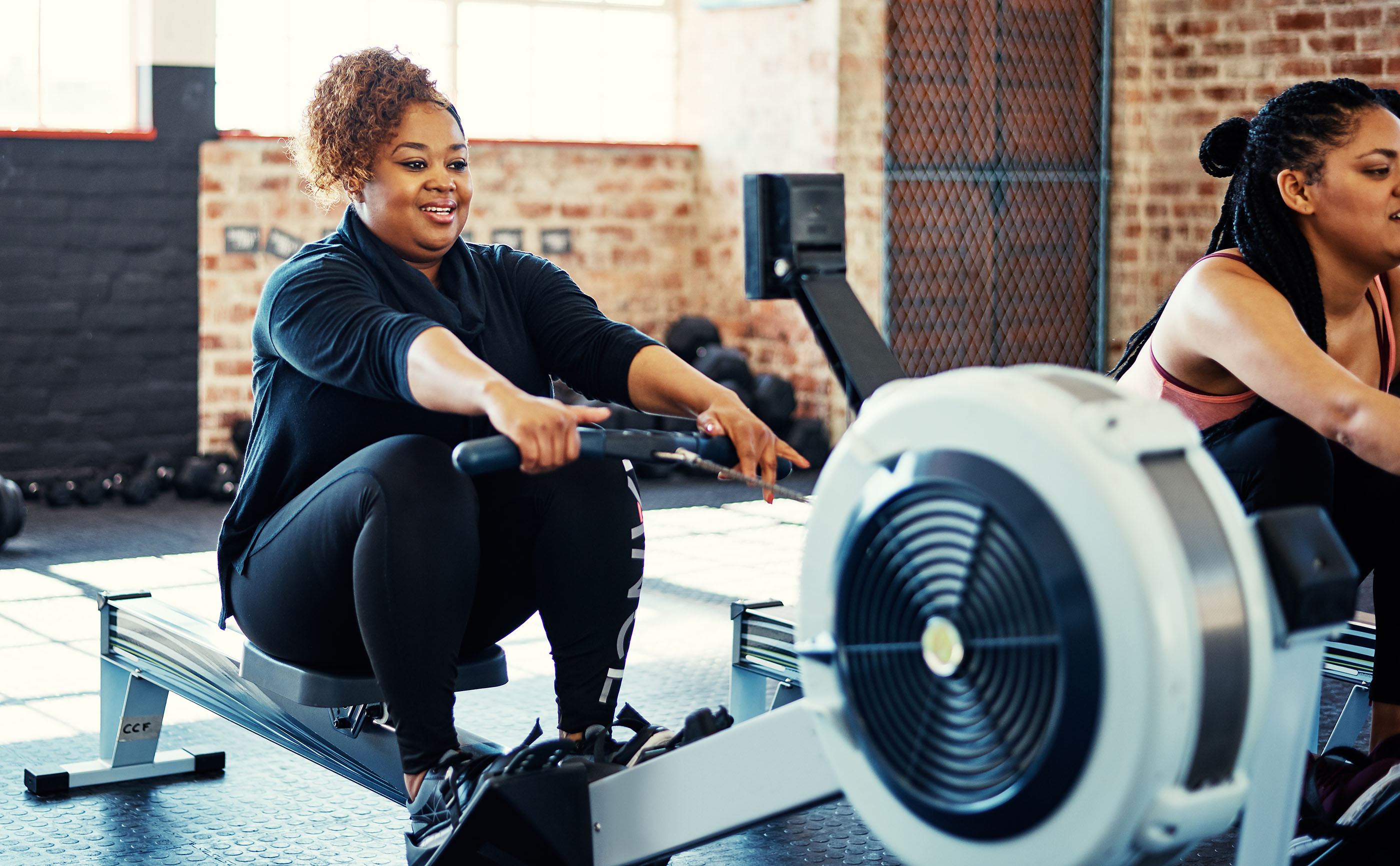
Using a rowing machine to lose weight
So we have firmly established that a rowing machine is a fantastic tool for helping you to lose weight. But how should you use a rowing machine to lose weight? We have the answers.
Decide on a frequency
Aiming for higher frequency but shorter sessions is usually the best approach. That may not only better fit into a busy lifestyle, but will have just as much impact on your fitness and weight loss.
A study from the Department of Physical Medicine and Rehabilitation, Hallym University Chuncheon Sacred Heart Hospital, put participants through a series of 40 minute (10 minute warm up, 20 minute rowing, 10 minute cool down) workouts five days per week. All benefited significantly from a fitness and body composition standpoint. So aiming to build up to 4-5 shorter sessions per week rather than 2-3 longer sessions is an ideal way to use the rowing machine to lose weight.
Work hard!
If weight loss were easy, we'd all be at an idea weight. Alas, it is not. In order to use a rowing machine to help you expend more calories, you will need to work hard. That might be uncomfortable and require getting used to. But the good news is that a rowing machine when used at this high intensity is proven to be effective at helping you to reduce body fat levels.
So what does hard actually mean? There are two ways we can gauge that…
- Using hard data - a heart rate monitor
- Subjective data - working on the RPE (rate of perceived exertion scale)
In terms of intensity, and dependent on your age, then if you are wearing a heart rate monitor maintaining 70%+ of your maximum heart rate for 20 minutes or more is sufficient.
With the RPE scale, working at around a 7 out of 10 of intensity for 20 minutes or more is good. You want to be sweaty and breathless, but able to exchange a few words with someone nearby, not on the verge of collapse.
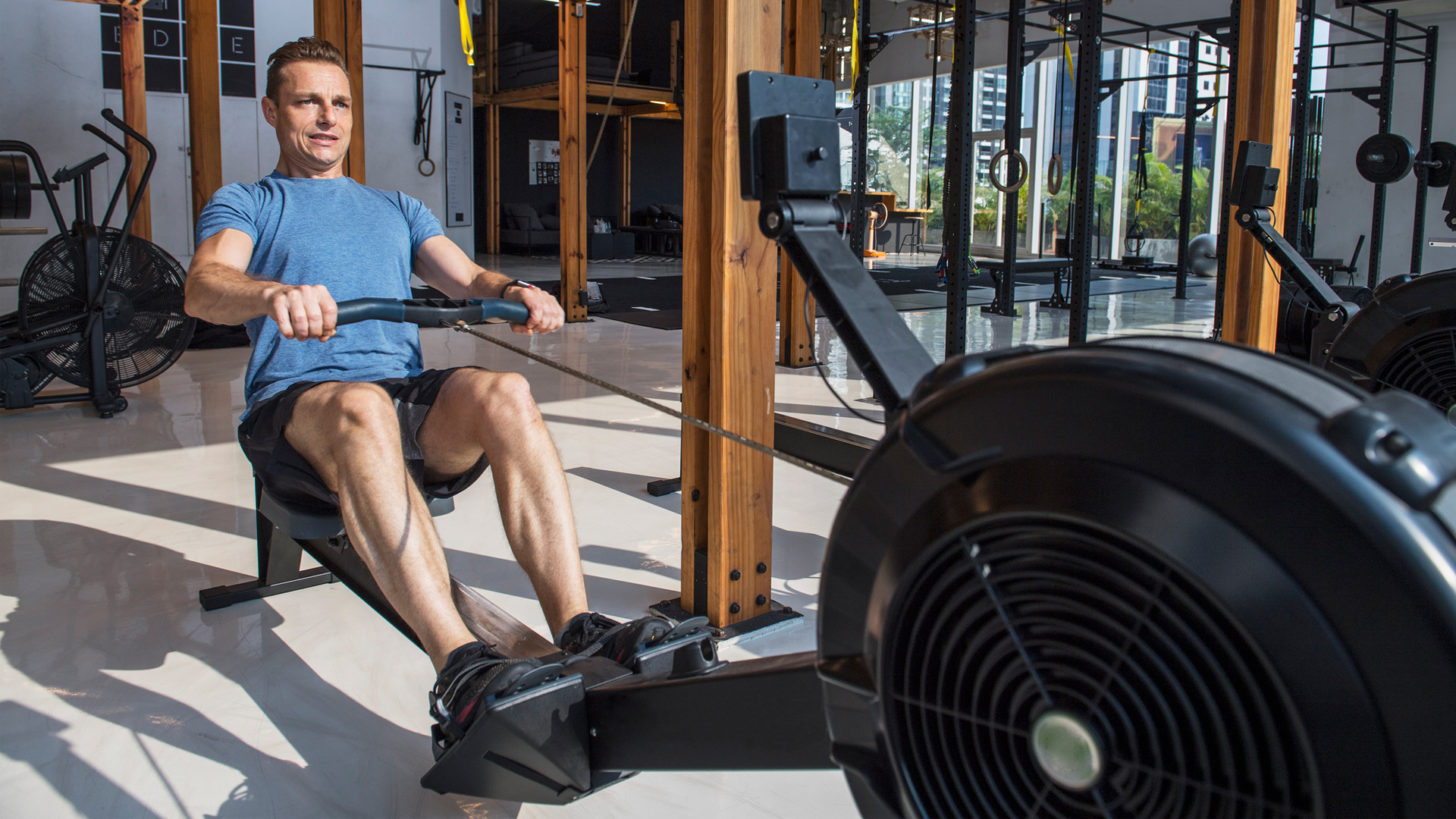
Use Interval training
There are two main types of cardio training:
- Steady state, where you work at a given intensity for a given period of time
- Intervals, where you mix up periods of high and low intensity
Interval training is consistently proven to be a very effective and efficient way of improving cardiovascular fitness. Only one or two of your weekly workouts need to be interval sessions and there is no need to make them complicated. Here are three simple approaches to intervals during a 20 minute workout - though make sure you warm up properly first.
- 30 seconds gentle pace, 20 seconds medium/fast pace, 10 seconds full sprint. Repeat x 20
- 30 seconds slow, 30 seconds fast. Repeat x 20
- 20 Seconds slow, 10 seconds fast. Repeat x 40
For best results, you should mix up the training. Just make sure you work hard, get your heart rate up and your breath racing, and you will burn lots of calories!
- Read more: What does exercise do to your brain?
Sign up for the Live Science daily newsletter now
Get the world’s most fascinating discoveries delivered straight to your inbox.
Steve Hoyles is a personal trainer and gym owner. He has written about health and fitness for over a decade, including Men’s Health, Men’s Fitness, BBC, Catalyst Athletics and hundreds of fitness websites as clients. He’s usually found at his gym or taking one of his two sons to their various sporting commitments!










